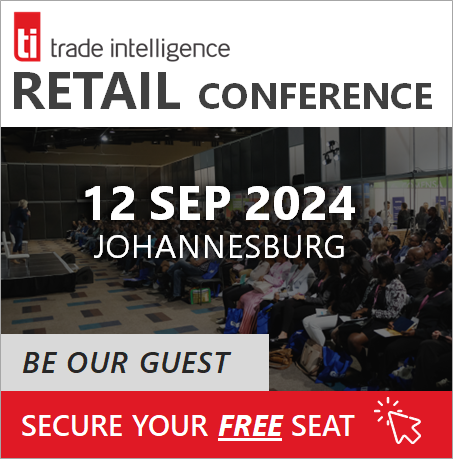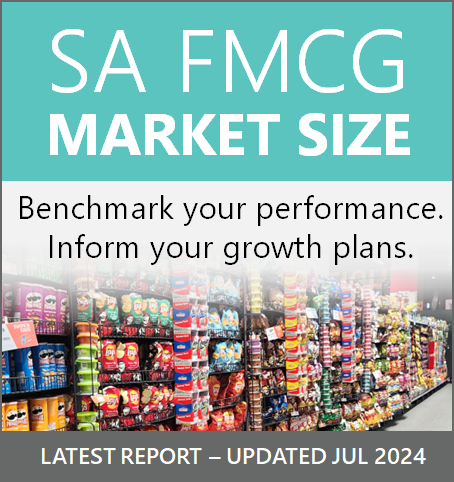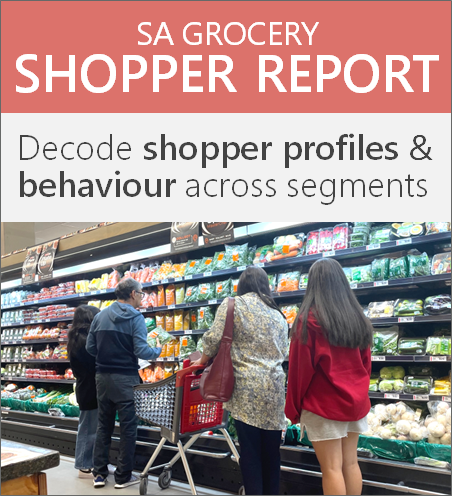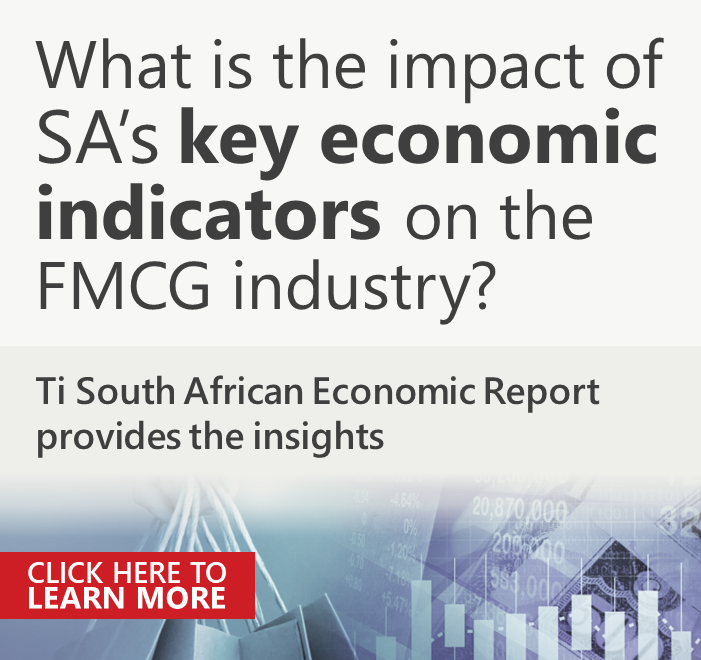
THIS ISSUE: 24 Sep - 30 Sep
Hearty congratulations to Bertina Engelbrecht, soon to take the helm over at Clicks as CEO. And to Clicks, first among our major retailers to properly dismantle the glass ceiling. Our industry is becoming a better place as women take their rightful place at the top table. Enjoy the read.
YOUR NUMBERS THIS WEEK
RETAILERS AND WHOLESALERS
-
SPAR How green was my trolley
A trading update from our friends at SPAR, where sales for the 48 weeks through August grew +3.9% to R116.1bn, while SPAR Southern Africa increased wholesale sales by +4.5%. The grocery business grew sales +0.5%, with liquor up +12% despite the frequent lockdowns, and Build it absolutely shot the lights out at +27.6%. Moving abroad, the BWG Foods business in Ireland and South West England increased turnover +3.3%, with Switzerland growing +7.3% and Poland up +17.5%. The growth in grocery back home was actually better than it appears. “SPAR Southern Africa benefited from increased home consumption with consumers choosing local, convenient and community-based SPAR stores during the initial hard lockdown in 2020,” the Group explains. “Consequently, the business has been impacted by the effect of the high base in the second half of the prior comparative period.”
Comment: SPAR’s strategy of diversification – into different categories and different geographies – has paid off in this difficult period.
-
-
Dis-Chem Strong medicine
Last week we reported on the progress Dis-Chem was making with the (relatively) newly acquired Baby City. This week, the news arrives that the business has received the approval of the Competition Tribunal for the purchase of Medicare Healthcare from Pure Pharmacy Holdings – a significant deal which, falling as it did over the Christmas break last year, did not receive the attention it deserved. Medicare, you see, owns 50 pharmacies and 43 in-store clinics, significantly expanding Dis-Chem’s pharmacy clinic network coverage. The acquisition will also extend Dis-Chem’s reach into geographies where it was previously thin on the ground. As is always the case with such purchases, supply chain and other operational synergies will doubtless result, and Dis-Chem also intends to extend its loyalty offering to Medicare shoppers.
Comment: Some years ago, when Dis-Chem first listed, it seemed doubtful that it would ever achieve the footprint of Clicks. Now it appears that it might not need to, yet still compete.
-
-
In Brief Symphony for breaking glass
Huge news from Clicks this week where Vikesh Ramsunder has stepped down as CEO to take up a similar position at an unnamed Australian business, making way for current group corporate affairs director Bertina Engelbrecht, who will be the first woman in such a position among our major retailers. This cements Clicks’ position as South Africa’s most empowered major retailer. Moving on, the numbers are in for Shoprite’s sale of its Ugandan, Nigerian and Madagascan businesses, and those numbers are $10.27m US on the old bottom line – a healthy gain on the disposal of loss-making stores. Back to SPAR, now, whose trading update we unpacked earlier: the Jolly Green One may soon join Pick n Pay and Boxer in disbursing the government’s R350 social relief of distress grants. This at the behest of the South African Post Office, which is looking for help in getting the cheques out there.
Comment: Absolutely fantastic news from Clicks – we hope that further such appointments follow among our major retailers.
-
-
International Retailers A sea of green
In the US, Walmart is tagging 2,000 products that are either viewed as better for one’s health or less damaging to the environment (or both) under their new “Built for Better” initiative. “For many of our customers, living better means shopping intentionally and prioritising brands and products that align with things that matter to them,” explains senior vice president of sustainability Jane Ewing. In other news of the worthy, P&G and Carrefour are teaming up to help plant 26 forests in the UAE, as part of P&G’s #ForestsforGood campaign. This is 26 more forests than currently exist there, although this could merely be our ignorance speaking. In the UK, Tesco has extended its green targets by promising net zero carbon emissions by 2050 across its operations as well as those generated by the products it sells and its supply chains. Also in the UK, Aldi is opening another 100 stores at the cost of £1.3bn; over in the EU, Lidl has announced a €1.5bn investment in its Spanish operations between 2021 and 2024.
Comment: Many developments, most of them positive. And we didn’t even get around to telling you about Lidl’s sold-out trainers…
MANUFACTURERS AND SERVICE PROVIDERS
-
Nestlé Big farmer
Nestlé announced at the UN Food Systems Summit this week that it will work with its food system partners, including its network of more than 500,000 farmers and 150,000 suppliers, to advance regenerative farming practices at the heart of the food system. Among the initiatives already underway are the development of higher-yielding coffee and cocoa varieties with lower environmental impact, and the assessment of novel solutions to reduce emissions in the dairy supply chain. The business will also initiate new programs to help address the social and economic challenges of the transition. “We know that regenerative agriculture plays a critical role in improving soil health, restoring water cycles and increasing biodiversity for the long term,” says Chairman Paul Bulcke. “These outcomes form the foundation of sustainable food production and, crucially, also contribute to achieving our ambitious climate targets.
Comment: We are on the cusp of an agricultural and industrial revolution that will be better for businesses, better for people, and better for the planet. It is to be hoped that this revolution hasn’t come too late.
-
-
Danfoss Cold comfort
Food loss and waste accounts for approximately 8% of the global greenhouse gas emissions annually. If food waste was its own country, in fact, it would be the world’s third-largest emitter of greenhouse gases and costs the global economy $940bn each year. What to do? Asking the engineers seems like a good place to start. Like Danfoss, for example, providers to our great industry of such essentials as condensing units, refrigerant distributors, heat exchangers and compressors – all of the stuff, essentially, which keeps our cold chain frosty and our food fresh. Signing up for the International Day of Awareness of Food Loss and Waste, Danfoss points out that existing cold chain technology can reduce food loss by up to 40%, as packing, storing, and transporting perishables at the right temperature extends their lifetime and ensures that resources are no longer wasted in the food supply before they reach the supermarkets.
Comment: It has ever been thus: the most effective solutions to waste are already with us.
TRADE ENVIRONMENT
-
Industrialisation Back to the grindstone
South Africa’s economy has deindustrialised at a rapid rate in recent decades, with the contribution of the manufacturing sector declining from 22% of GDP in the early 1990s to 12% currently. And the sector’s capital base – its total investment value if you will – has shrunk from R677.7bn in 2008 to R545.9bn in real terms. Last year – admittedly under the burden of the COVID pandemic – manufacturing declined -0.8%, removing 0.1 percentage points from the overall GDP number, although many industries reported a recovery of growth in the second half of the year. What is to be done? “Part of our policy response requires that we place emphasis on fundamentally transforming the structure of our economy — to move from low-growth and low-labour-absorbing sectors to sectors of high growth, high productivity and greater labour absorption,” says Finance Minister Enoch Godongwana. Such sectors include mining and manufacturing.
Comment: Easily said. But our country remains a repository of much of the earth’s mineral wealth, and much of its spirit of innovation, too.
Sign up to receive the latest SA and international FMCG news weekly.
Tatler Archive
“We, the people, do have the power to stop the tragic waste of resources if we regard it as socially unacceptable to waste food.”







1.png)
